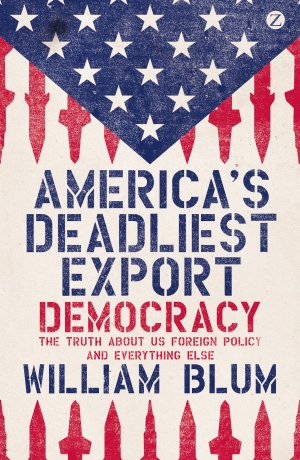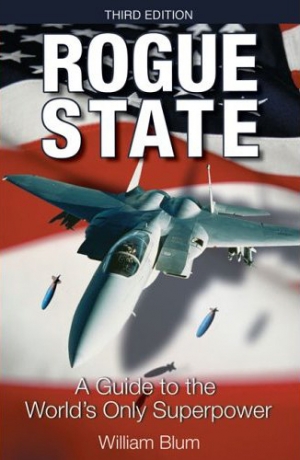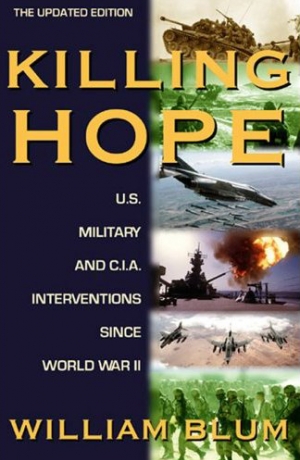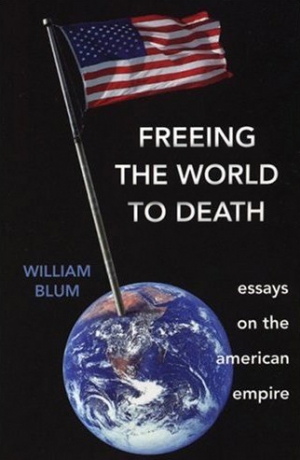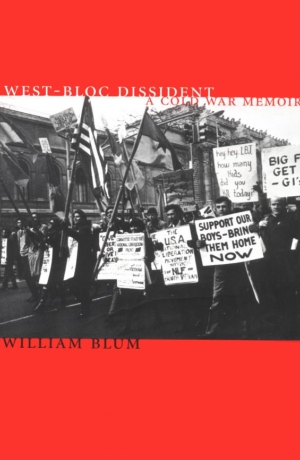Italy, 1947-1948: Free elections, Hollywood-style
“Those who do not believe in the ideology of the United States, shall not be allowed to stay in the United States,” declared the American Attorney General, Tom Clark, in January 1948. 1
In March, the Justice Department, over which Clark presided, determined that Italians who did not believe in the ideology of the United States would not be allowed to emigrate to, or even enter, the United States.
This was but one tactic in a remarkable American campaign to ensure that Italians who did not believe in the ideology of the United States would not be allowed to form a government of a differing ideology in Italy in their election of 1948.
Two years earlier, the Italian Communist Party (PCI), one of the largest in the world, and the Socialist Party (PSI) had together garnered more votes and more seats in the Constituent Assembly election than the Christian Democrats. But the two parties of the left had run separate candidates and thus had to be content with some ministerial posts in a coalition cabinet under a Christian Democrat premier. The results, nonetheless, spoke plainly enough to put the fear of Marx into the Truman administration.
For the 1948 election, scheduled for 18 April, the PCI and PSI united to form the Popular Democratic Front (FDP) and in February won municipal elections in Pescara with a 10 percent increase in their vote over 1946. The Christian Democrats ran a poor second. The prospect of the left winning control of the Italian government loomed larger than ever before. It was at this point that the US began to train its big economic and political guns upon the Italian people. All the good ol’ Yankee know-how, all the Madison Avenue savvy in the art of swaying public opinion, all the Hollywood razzmatazz would be brought to bear on the “target market”.
Pressing domestic needs in Italy, such as agricultural and economic reform, the absence of which produced abysmal extremes of wealth and poverty, were not to be the issues of the day. The lines of battle would be drawn around the question of “democracy” vs. “communism” (the idea of “capitalism” remaining discreetly to one side). The fact that the Communists had been the single most active anti-fascist group in Italy during the war, undergoing ruthless persecution, while the Christian Democrat government of 1948 and other electoral opponents on the right were riddled through with collaborators, monarchists and plain unreconstructed fascists … this too would be ignored; indeed, turned around. It was now a matter of Communist “dictatorship” vs. their adversaries’ love of “freedom”: this was presumed a priori. As one example, a group of American congressmen visited Italy in summer 1947 and casually and arbitrarily concluded that “The country is under great pressure from within and without to veer to the left and adopt a totalitarian-collective national organization.” 2
To make any of this at all credible, the whole picture had to be pushed and squeezed into the frame of The American Way of Life vs. The Soviet Way of Life, a specious proposition which must have come as somewhat of a shock to leftists who regarded themselves as Italian and neither Russian nor American.
In February 1948, after non-Communist ministers in Czechoslovakia had boycotted cabinet meetings over a dispute concerning police hiring practices, the Communist government dissolved the coalition cabinet and took sole power. The Voice of America pointed to this event repeatedly, as a warning to the Italian people of the fate awaiting them if Italy “went Communist” (and used as well by anti-communists for decades afterward as a prime example of communist duplicity). Yet, by all appearances, the Italian Christian Democrat government and the American government had conspired the previous year in an even more blatant usurpation of power.
In January 1947, when Italian Premier Alcide de Gasperi visited Washington at the United States’ invitation, his overriding concern was to plead for crucial financial assistance for his war-torn, impoverished country. American officials may have had a different priority. Three days after returning to Italy, de Gasperi unexpectedly dissolved his cabinet, which included several Communists and Socialists. The press reported that many people in Italy believed that de Gasperi’s action was related to his visit to the United States and was aimed at decreasing leftist, principally Communist, influence in the government. After two weeks of tortuous delay, the formation of a center or center-right government sought by de Gasperi proved infeasible; the new cabinet still included Communists and Socialists although the left had lost key positions, notably the ministries of foreign affairs and finance.
From this point until May, when de Gasperi’s deputy, Ivan Lombardo, led a mission to Washington to renew the request for aid, promised loans were “frozen” by the United States for reasons not very clear. On several occasions during this period the Italian left asserted their belief that the aid was being held up pending the ouster of leftists from the cabinet. The New York Times was moved to note that, “Some observers here feel that a further Leftward swing in Italy would retard aid.” As matters turned out, the day Lombardo arrived in Washington, de Gasperi again dissolved his entire cabinet and suggested that the new cabinet would manage without the benefit of leftist members. This was indeed what occurred, and over the ensuing few months, exceedingly generous American financial aid flowed into Italy, in addition to the cancelation of the nation’s $1 billion debt to the United States. 3
At the very same time, France, which was also heavily dependent upon American financial aid, ousted all its Communist ministers as well. In this case there was an immediate rationale: the refusal of the Communist ministers to support Premier Ramadier in a vote of confidence over a wage freeze. Despite this, the ouster was regarded as a “surprise” and considered “bold” in France, and opinion was widespread that American loans were being used, or would be used, to force France to align with the US. Said Ramadier: “A little of our independence is departing from us with each loan we obtain.” 4
As the last month of the 1948 election campaign began, Time magazine pronounced the possible leftist victory to be “the brink of catastrophe”. 5
“It was primarily this fear,” William Colby, former Director of the CIA, has written, “that had led to the formation of the Office of Policy Coordination, which gave the CIA the capability to undertake covert political, propaganda, and paramilitary operations in the first place.” 6 But covert operations, as far as is known, played a relatively minor role in the American campaign to break the back of the Italian left. It was the very overtness of the endeavor, without any apparent embarrassment, that stamps the whole thing with such uniqueness and arrogance – one might say swagger. The fortunes of the FDP slid downhill with surprising acceleration in the face of an awesome mobilization of resources such as the following: 7
A massive letter writing campaign from Americans of Italian extraction to their relatives and friends in Italy – at first written by individuals in their own words or guided by “sample letters” in newspapers, soon expanded to mass-produced, pre- written, postage-paid form letters, cablegrams, “educational circulars”, and posters, needing only an address and signature. And – from a group calling itself The Committee to Aid Democracy in Italy – half a million picture postcards illustrating the gruesome fate awaiting Italy if it voted for “dictatorship” or “foreign dictatorship”. In all, an estimated 10 million pieces of mail were written and distributed by newspapers, radio stations, churches, the American Legion, wealthy individuals, etc.; and business advertisements now included offers to send letters airmail to Italy even if you didn’t buy the product. All this with the publicly expressed approval of the Acting Secretary of State and the Post Office which inaugurated special “Freedom Flights” to give greater publicity to the dispatch of the mail to Italy.The form letters contained messages such as: “A communist victory would ruin Italy. The United States would withdraw aid and a world war would probably result.” … “We implore you not to throw our beautiful Italy into the arms of that cruel despot communism. America hasn’t anything against communism in Russia [sic], but why impose it on other people, other lands, in that way putting out the torch of liberty?” … “If the forces of true democracy should lose in the Italian election, the American Government will not send any more money to Italy and we won’t send any more money to you, our relatives.”These were by no means the least sophisticated of the messages. Other themes emphasized were Russian domination of Italy, loss of religion and the church, loss of family life, loss of home and land.Veteran newsman Howard K. Smith pointed out at the time that “For an Italian peasant a telegram from anywhere is a wondrous thing; and a cable from the terrestrial paradise of America is not lightly to be disregarded.”
The letters threatening to cut off gifts may have been equally intimidating. "Such letters," wrote a Christian Democrat official in an Italian newspaper, "struck home in southern Italian and Sicilian villages with the force of lightning." A 1949 poll indicated that 16 percent of Italians claimed relatives in the United States with whom they were in touch; this, apparently, was in addition to friends there.The State Department backed up the warnings in the letters by announcing that “If the Communists should win … there would be no further question of assistance from the United States.” The Italian left felt compelled to regularly assure voters that this would not really happen. This, in turn, inspired American officials, including Secretary of State George Marshall, to repeat the threat. (Marshall was awarded the Nobel Peace Prize in 1953.)
A daily series of direct short-wave broadcasts to Italy backed by the State Department and featuring prominent Americans. (The State Department estimated that there were 1.2 million short-wave receivers in Italy as of 1946.) The Attorney General went on the air and assured the Italian people that the election was a “choice between democracy and communism, between God and godlessness, between order and chaos.” William Donovan, the wartime head of the OSS (forerunner of the CIA) warned that “under a communist dictatorship in Italy,” many of the “nation’s industrial plants would be dismantled and shipped to Russia and millions of Italy’s workers would be deported to Russia for forced labor.” If this were not enough to impress the Italian listeners, a parade of unknown but passionate refugees from Eastern Europe went before the microphone to recount horror stories of life behind “The Iron Curtain”.
Several commercial radio stations broadcast to Italy special services held in American Catholic churches to pray for the Pope in “this, his most critical hour”. On one station, during an entire week, hundreds of Italian-Americans from all walks of life delivered one-minute messages to Italy which were relayed through the short-wave station. Station WOV in New York invited Italian war brides to transcribe a personal message to their families back home. The station then mailed the recordings to Italy.
Voice of America daily broadcasts into Italy were sharply increased, highlighting news of American assistance or gestures of friendship to Italy. A sky-full of show-biz stars, including Frank Sinatra and Gary Cooper, recorded a series of radio programs designed to win friends and influence the vote in Italy. Five broadcasts of Italian-American housewives were aired, and Italian-Americans with some leftist credentials were also enlisted for the cause. Labor leader Luigi Antonini called upon Italians to “smash the Muscovite fifth column” which “follows the orders of the ferocious Moscow tyranny,” or else Italy would become an “enemy totalitarian country”.
To counter Communist charges in Italy that negroes in the United States were denied opportunities, the VOA broadcast the story of a negro couple who had made a fortune in the junk business and built a hospital for their people in Oklahoma City. (It should be remembered that in 1948 American negroes had not yet reached the status of second-class citizens.)
Italian radio stations carried a one-hour show from Hollywood put on to raise money for the orphans of Italian pilots who had died in the war. (It was not reported if the same was done for the orphans of German pilots.)
American officials in Italy widely distributed leaflets extolling US economic aid and staged exhibitions among low-income groups. The US Information Service presented an exhibition on “The Worker in America” and made extensive use of documentary and feature films to sell the American way of life. It was estimated that in the period immediately preceding the election more than five million Italians each week saw American documentaries. The 1939 Hollywood film “Ninotchka”, which satirized life in Russia, was singled out as a particularly effective feature film. It was shown throughout working-class areas and the Communists made several determined efforts to prevent its presentation. After the election, a pro-Communist worker was reported as saying that “What licked us was ‘Ninotchka’.”
The Justice Department served notice that Italians who joined the Communist Party would be denied that dream of so many Italians, emigration to America. The State Department then ruled that any Italians known to have voted for the Communists would not be allowed to even enter the terrestrial paradise. (A Department telegram to a New York politico read: “Voting Communist appears to constitute affiliation with Communist Party within meaning of Immigration Law and therefore would require exclusion from United States.”) It was urged that this information be emphasized in letters to Italy.
President Truman accused the Soviet Union of plotting the subjugation of Western Europe and called for universal military training in the United States and a resumption of military conscription to forestall “threatened communist control and police-state rule”. During the campaign, American and British warships were frequently found anchored off Italian ports. Time, in an edition widely displayed and commented upon in Italy shortly before the election, gave its approval to the sentiment that “The U.S. should make it clear that it will use force, if necessary, to prevent Italy from going Communist.” 8
The United States and Italy signed a ten-year treaty of “friendship, commerce and navigation”. This was the first treaty of its kind entered into by the US since the war, a point emphasized for Italian consumption.
A “Friendship Train” toured the United States gathering gifts and then traveled round Italy distributing them. The train was painted red, white and blue, and bore large signs expressing the friendship of American citizens toward the people of Italy.
The United States government stated that it favored Italian trusteeship over some of its former African colonies, such as Ethiopia and Libya, a wholly unrealistic proposal that could never come to pass in the post-war world. (The Soviet Union made a similar proposal.)
The US, Great Britain and France maneuvered the Soviet Union into vetoing, for the third time, a motion that Italy be admitted to the United Nations. (The first time, the Russians had expressed their opposition on the grounds that a peace treaty with Italy had not been signed. After the signing in 1947, they said they would accept the proposal if other World War II enemies, such as Bulgaria, Hungary and Rumania were also made members.)
The same three allied nations proposed to the Soviet Union that negotiations take place with a view to returning Trieste to Italy. Formerly the principal Italian port on the Adriatic coast, bordering Yugoslavia, Trieste had been made a “free city” under the terms of the peace treaty. The approval of the Soviet Union was necessary to alter the treaty, and the Western proposal was designed to put the Russians on the spot. The Italian people had an intense sentimental attachment to Trieste, and if the Russians rejected the proposal it could seriously embarrass the Italian Communists. A Soviet acceptance, however, would antagonize their Yugoslav allies. The US prodded the Russians for a response, but none was forthcoming. From the Soviet point of view, the most obvious and safest path to follow would have been to delay their answer until after the election. Yet they chose to announce their rejection of the proposal only five days before the vote, thus hammering another nail into the FDP coffin.
A “Manifesto of peace to freedom-loving Italians”, calling upon them to reject Communism, was sent to Premier de Gasperi. Its signatories included two former US Secretaries of State, a former Assistant Secretary of State, a former Attorney General, a former Supreme Court Justice, a former Governor of New York, the former first lady Eleanor Roosevelt, and many other prominent personages. This message was, presumably, suitably publicized throughout Italy, a task easy in the extreme inasmuch as an estimated 82 percent of Italian newspapers were in the hands of those unsympathetic to the leftist bloc.
More than 200 American labor leaders of Italian origin held a conference, out of which came a cable sent to 23 daily newspapers throughout Italy similarly urging thumbs down on the Reds. At the same time, the Italian-American Labor Council contributed $50,000 to anti-Communist labor organizations in Italy. The CIA was already secretly subsidizing such trade unions to counteract the influence of leftist unions, 9 but this was standard Agency practice independent of electoral considerations. (According to a former CIA officer, when, in 1945, the Communists came very near to gaining control of labor unions, first in Sicily, then in all Italy and southern France, co-operation between the OSS and the Mafia successfully stemmed the tide.) 10
The CIA, by its own later admission, gave $1 million to Italian “center parties”, a king’s ransom in Italy 1948 11 ), although another report places the figure at $10 million. The Agency also forged documents and letters purported to come from the PCI which were designed to put the party in a bad light and discredit its leaders; anonymous books and magazine articles funded by the CIA told in vivid detail about supposed communist activities in Eastern Europe and the Soviet Union; pamphlets dealt with PCI candidates’ sex and personal lives as well as smearing them with the fascist and/or anti-church brush. 12
An American group featuring noted Italian-American musicians traveled to Rome to present a series of concerts.
President Truman chose a month before the election as the time to transfer 29 merchant ships to the Italian government as a “gesture of friendship and confidence in a democratic Italy”. (These were Italian vessels seized during the war and others to replace those seized and lost.)
Four days later, the House Appropriations Committee acted swiftly to approve $18.7 million in additional “interim aid” funds for Italy.
Two weeks later, the United States gave Italy $4.3 million as the first payment on wages due to 60,000 former Italian war prisoners in the US who had worked “voluntarily” for the Allied cause. This was a revision of the peace treaty which stipulated that the Italian government was liable for such payments.
Six days before election day, the State Department made it public that Italy would soon receive $31 million in gold in return for gold looted by the Nazis. (The fact that only a few years earlier Italy had been the “enemy” fighting alongside the Nazis was now but a dim memory.)
Two days later, the US government authorized two further large shipments of food to Italy, one for $8 million worth of grains. A number of the aid ships, upon their arrival in Italy during the election campaign, had been unloaded amid ceremony and a speech by the American ambassador.
A poster prominent in Italy read: “The bread that we eat – 40 per cent Italian flour – 60 per cent American flour sent free of charge.” The poster neglected to mention whether the savings were passed on to the consumer or served to line the pockets of the baking companies.
Four days before election day, the American Commission for the Restoration of Italian Monuments, Inc. announced an additional series of grants to the Italian Ministry of Fine Arts.
April 15 was designated “Free Italy Day” by the American Sympathizers for a Free Italy with nation-wide observances to be held.
The American ambassador, James Clement Dunn, traveled constantly throughout Italy pointing out to the population “on every possible occasion what American aid has meant to them and their country”. At the last unloading of food, Dunn declared that the American people were saving Italy from starvation, chaos and possible domination from outside. His speeches usually received wide coverage in the non-left press. By contrast, the Italian government prohibited several of its own ambassadors abroad from returning home to campaign for the FDP.
In his historic speech of 12 March 1947, which came to be known as “The Truman Doctrine”, the president had proclaimed:
I believe it must be the policy of the United States to support free peoples who are resisting attempted subjugation by armed minorities or by outside pressures. I believe that we must assist free peoples to work out their own destinies in their own way. 13
It scarcely needs to be emphasized how hypocritical this promise proved to be, but the voices which spoke out in the United States against their government’s crusade in Italy were few and barely audible above the roar. The Italian-American Committee for Free Elections in Italy held a rally to denounce the propaganda blitz, declaring that “Thousands of Americans of Italian origin feel deeply humiliated by the continuous flow of suggestions, advice and pressure put on the Italians, as though they were unable to decide for themselves whom to elect.” 14
The Progressive Party also went on record, stating: “As Americans we repudiate our Government’s threat to cut off food from Italy unless the election results please us. Hungry children must not go unfed because their parents do not vote as ordered from abroad.” 15 The party’s candidate for president in 1948 was Henry Wallace, the former vice-president who was an outspoken advocate of genuine detente with the Soviet Union. History did not provide the opportunity to observe what the reaction would have been – amongst those who saw nothing wrong with what the United States was doing in Italy – if a similar campaign had been launched by the Soviet Union or the Italian left in the United States on behalf of Wallace.
Though some Italians must have been convinced at times that Stalin himself was the FDP’s principal candidate, the actual Soviet intervention in the election hardly merited a single headline. The American press engaged in speculation that the Russians were pouring substantial sums of money into the Communist Party’s coffers. However, a survey carried out by the Italian bureau of the United Press revealed that the anti-Communist parties spent 7 1/2 times as much as the FDP on all forms of propaganda, the Christian Democrats alone spending four times as much. 16 As for other Soviet actions, Howard K. Smith presented this observation:
The Russians tried to respond with a few feeble gestures for a while – some Italian war prisoners were released; some newsprint was sent to Italy and offered to all parties for their campaign. But there was no way of resisting what amounted to a tidal wave.
There is evidence that the Russians found the show getting too rough for them and actually became apprehensive of what the American and British reaction to a Communist victory at the polls might be. (Russia’s concern about conflict with the West was also expressed within a month of the Italian elections in one of the celebrated Cominform letters to Tito, accusing the Yugoslavs of trying to involve the Soviets with the Western powers when “it should have been known … that the U.S.S.R. after such a heavy war could not start a new one”.) 17
The evidence Smith was alluding to was the Soviet rejection of the Trieste proposal. By its timing, reported the New York Times, “the unexpected procedure caused some observers to conclude that the Russians had thrown the Italian Communist Party overboard.” 18 The party’s newspaper had a difficult time dealing with the story. Washington did as well, for it undermined the fundamental premise of the Italian campaign: that the Italian Communist Party and the Soviet Union were indistinguishable as to ends and means; that if you buy the one, you get the other as well. Thus the suggestion was put forth that perhaps the Soviet rejection was only a tactic to demonstrate that the US could not keep its promise on Trieste. But the Soviet announcement had not been accompanied by any such propaganda message, and it would not explain why the Russians had waited several weeks until near the crucial end to deliver its body blow to their Italian comrades. In any event, the United States could only come out smelling a lot sweeter than the Russians.
When the Broadway show had ended its engagement in Italy, the Christian Democrats stood as the clear winner with 48 percent of the vote. The leftist coalition had been humiliated with a totally unexpected polling of but 31 percent. It had been a crusade of the kind which Aneurin Bevan had ascribed to the Tories: “The whole art of Conservative politics in the 20th century,” the British Labour leader wrote, “is being deployed to enable wealth to persuade poverty to use its political freedom to keep wealth in power.”
Notes
- Addressing the Cathedral Club of Brooklyn, 15 January 1948; cited in David Caute, The Great Fear: The Anti-Communist Purge Under Truman and Eisenhower (Simon and Schuster, New York, 1979), p. 15.
- Robert T. Holt and Robert W. van de Velde, Strategic Psychological Operations and American Foreign Policy (University of Chicago Press, 1960) p. 169.
- Dissolving the cabinet: New York Times, 21 January 1947, p. 5; 26 January, p. 31; 3 February, p. 1; 5 May, p. 13; 13 May; 14 May; 29 May, p.3; 2 June, p. 24.
- New York Times, 5 May 1947, p. 1; 11 May, IV, p. 5; 14 May, pp. 14 and 24; 17 May, p. 8; 18 May, IV, p. 4; 20 May, p. 2; Howard K. Smith, The State of Europe (London, 1950), p. 151 (includes Ramadier quote; similar quote in New York Times, 20 May).
- Time, 22 March 1948, p. 35.
- William Colby, Honorable Men: My Life in the CIA (New York, 1978), p. 109.
- Except where otherwise indicated, the items in the succeeding list are derived from the following: a) New York Times, 16 March to 18 April 1948, passim; b) Howard K. Smith, pp. 198-219; c) William E. Daugherty and Morris Janowitz, A Psychological Warfare Casebook (Johns Hopkins Press, Baltimore, 1958), pp. 319-26; d) Holt and van de Velde, pp. 159-205; e) E. Edda Martinez and Edward A. Suchman, “Letters from America and the 1948 Elections in Italy”, The Public Opinion Quarterly (Princeton University), Spring 1950, pp. 111-25.
- Cited in Smith, p. 202, no date of issue given.
- Tom Braden, “I’m Glad the CIA is ‘Immoral’”, Saturday Evening Post, 20 May 1967; Braden had been a high-ranking CIA officer.
- Miles Copeland, Without Cloak and Dagger (New York, 1974), pp. 235-6; also published as The Real Spy World.
- CIA memorandum to the Forty Committee (National Security Council), presented to the Select Committee on Intelligence, US House of Representatives (The Pike Committee) during closed hearings held in 1975. The bulk of the committee’s report which contained this memorandum was leaked to the press in February 1976 and first appeared in book form as CIA – The Pike Report (Nottingham, England, 1977). The memorandum appears on pp. 204-5 of this book. (See also: Notes: Iraq.
- Stephen Goode, The CIA (Franklin Watts, Inc., New York, 1982), p. 45; William R. Corson,* The Armies of Ignorance: The Rise of the American Intelligence Empire* (The Dial Press, New York, 1977) pp. 298-9. Corson had an extensive career in military intelligence and was Staff Secretary of the President’s Special Group Joint DOD-CIA Committee on Counterinsurgency R & D.
- Public Papers of the Presidents of the United States: Harry S. Truman, 1947 (U.S. Government Printing Office, Washington, 1963) pp. 178-9.
- New York Times, 8 April 1948.
- Ibid., 12 April 1948.
- Smith, p. 200.
- Ibid., p. 202.
- New York Times, 15 April 1948.
This is a chapter from Killing Hope: U.S. Military and CIA Interventions Since World War II by William Blum.
